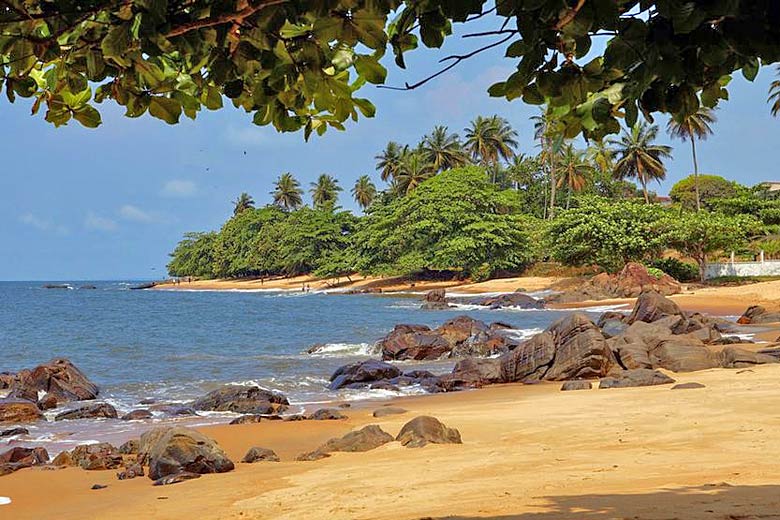- Check out top deals on tours to Turkmenistan
- Explore places to visit & most popular itineraries
- Filter deals by experience, duration, level & price
Turkmenistan weather by month
Check out Turkmenistan weather averages by month. Compare detailed monthly climate statistics including temperature, rainfall and sunshine figures.
| Jan | Feb | Mar | Apr | May | Jun | Jul | Aug | Sep | Oct | Nov | Dec | |
|---|---|---|---|---|---|---|---|---|---|---|---|---|
| Maximum daytime temperature °C |  7 7 |
 9 9 |
 15 15 |
 23 23 |
 30 30 |
 35 35 |
 38 38 |
 36 36 |
 31 31 |
 23 23 |
 16 16 |
 10 10 |
| Hours of sunshine (daily) | ||||||||||||
| Days with some rainfall |  8 8 |
 8 8 |
 11 11 |
 10 10 |
 7 7 |
 2 2 |
 1 1 |
 1 1 |
 1 1 |
 5 5 |
 6 6 |
 8 8 |
More about Turkmenistan
Turkmenistan by month
Jan Feb Mar Apr May Jun Jul Aug Sep Oct Nov Dec
Recommended for Turkmenistan
The climate guide for Turkmenistan (Ashgabat) shows long term monthly weather averages processed from data supplied by CRU (University of East Anglia), the Met Office & the Netherlands Meteorological Institute. Find out more about our data sources.
Top Turkmenistan destinations
Below are average maximum temperatures at popular countries, regions and places in Turkmenistan for next month - August. Select a destination to see the climate guide for all months of the year.
All Turkmenistan destinations
Metric (°C / mm) | Imperial (°F / inches)
Turkmenistan climate overview
This central Asian republic gained independence after the break-up of the former Soviet Union during the early 1990's. It is sparsely populated, with previously nomadic tribes now centred in a few bleak towns. The economy is largely agricultural, although oil and gas reserves are gradually being exploited.
80% of Turkmenistan is desert; in fact the Karakum (Black Sand) Desert in the centre of the country is one of the largest sand deserts in the world. This arid landscape is mostly flat sand with occasional ancient oases.
Summers are bone dry and can become extremely hot under unbroken sunshine. By contrast, winters are cold with daytime temperatures close to freezing. Occasional showers sweep across the desert from December to February, but do not amount to much.
South and East Turkmenistan is bordered by scenic mountains and particularly beautiful is Gaudark where the Amu-Darya River flows down from the mountains. In contrast to the desert, there are waterfalls, gorges and caves. Summers are still hot and dry, and winters cold; spring showers allow grazing pastures to flourish along the river valley. The longest irrigation channel in the world runs from the Amu-Darya River, across the desert, to Ashgabat in the west, allowing cotton and grain to be grown in otherwise desert areas.
Turkmenistan borders the Caspian Sea to the west, which is largely unspectacular with little more than scrub vegetation along its shoreline. Summers here are warm and dry, becoming cold with a few showers in the winter.
Occasional earthquakes are possible in the south and east of the country.
Compare Turkmenistan with the UK
Below the Turkmenistan chart shows average maximum daytime temperature for Turkmenistan (Ashgabat) and the UK (London).
Maximum daytime temperature (°C)
Metric (°C / mm) | Imperial (°F / inches)
Compare more Turkmenistan weather >>
Be inspired
Get your weekly fix of holiday inspiration from some of the world's best travel writers plus save on your next trip with the latest exclusive offers
We promise not to share your details
Related posts
Popular travel offers
Explore holidays in the sun for less
- Beach holidays
- Family holidays
- City breaks
- Summer holidays
- Winter sun holidays
- Holiday offers
- Top travel brands
- Airlines & flights
- Discount hotels
- Airport parking deals
- TUI
- Jet2holidays
- easyJet holidays
- Love Holidays
- January sales
Airport parking
- Manchester Airport
- Stansted Airport
- Bristol Airport
- Luton Airport
- Birmingham Airport
- Edinburgh Airport
- Gatwick Airport
- Glasgow Airport
- Newcastle Airport
Airport lounges
- Manchester Airport
- Birmingham Airport
- Bristol Airport
- Edinburgh Airport
- Glasgow Airport
- Heathrow Airport
- Newcastle Airport
- Stansted Airport
- Gatwick Airport

























